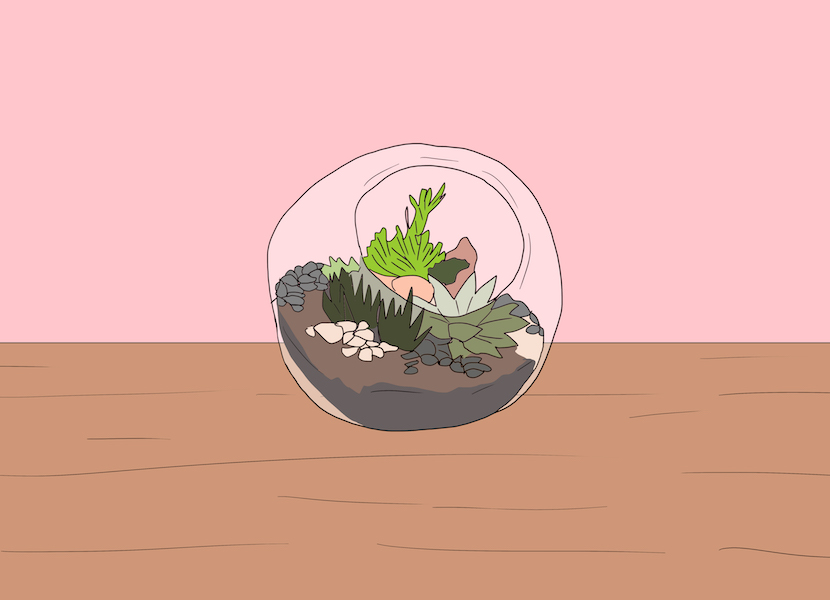Genetically modified houseplants are here to keep your home pollutant-free
Words by Maeve Kerr-Crowley
Illustration by Twylamae
Breathe it in.
Fighting back against climate change can be hard when you’re just one person.
Thankfully, scientists have been scheming achievable ways of cleaning up the earth and improving our quality of life.
One incredibly impressive feat involves genetically modifying houseplants to purify the air. For two years, researchers at the University of Washington have been working on modified pothos ivy plants, designed to process and remove air pollutants.
The plants target chloroform and benzene, which are produced largely by industrial production and can react with various air pollutants to damage crops and other materials.
To create these super handy plants, scientists took the 2E1 protein found in all mammals – in the human liver, for example – and used it to genetically modify the ivy.
The team’s findings, published in Environmental Science and Technology, are very promising.
Both regular and modified pothos ivy plants were exposed to chloroform and benzene gases and observed over 11 days.
While the air around the regular plant showed no changes, the modified plant altered the concentration of the pollutants significantly. Chloroform levels dropped 82 per cent in three days, and were basically undetectable after six days, while Benzene levels dropped 75 per cent in eight days.
Next, the team plans to tackle formaldehyde pollution.
To read the full report, head here.













